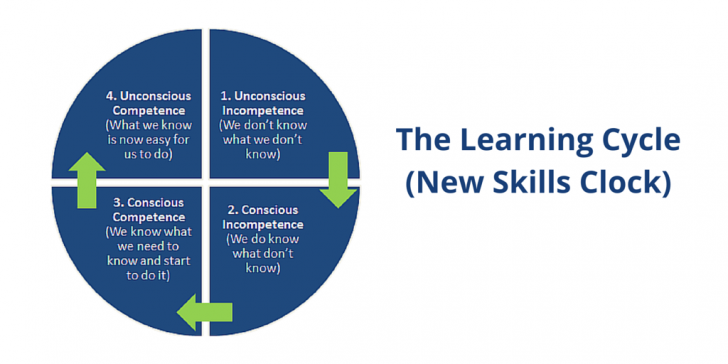Consolidating the future of the NHS
Consolidating the future of the NHS
The NHS England planning guidance was published at the end of March, and the key word in the document is…

The concept of the learning cycle and the four stages of competence are well established, although who developed the concept is still a source of debate. It might have been Noel Burch in the 1970s but others attribute the model to Abraham Maslow – he seems to get a lot of credit for things he didn’t actually write down.
In my previous role with HENRY I worked with early years’ practitioners to help them understand the learning cycle and the challenges faced by families when they are making healthy lifestyle changes and learning new skills. At the heart of this was enabling practitioners to tune into the emotional needs of families and how best to support them out of unconscious incompetence into conscious incompetence and moving towards competence. Examples of new skills included cooking from scratch or trying out new parenting techniques.
Learning new skills is an emotional business and I have been reminded of this since I have joined IMPOWER as I am on my own journey through the learning cycle. Some elements of my role as a Senior Consultant I’m comfortable with but there have also been a lot of ‘unknown unknowns’ for me to get my head around and the emotional strain of realising what you don’t know and not being totally sure how and when you will improve. I have been extremely grateful to my new colleagues who are providing the information, support and empathy I need to move forward.
These same colleagues are working with clients around the country to support behaviour change and the learning of new skills – especially in relation to concepts such as demand management. This is a learning cycle for both citizens and local authorities. Many citizens and dedicated public servants want to step out of their comfort zone and make changes but this is an emotional commitment that can add extra weight to an already challenging role/life.
When IMPOWER launched The Inflection Point Liam Booth-Smith wrote: “local authorities must either choose their future and act accordingly, or allow it to be chosen for them.” For me The Inflection Point report supports leaders who are still on working through ‘conscious incompetence’ (and even ‘conscious competence’) and helps to nudge those still not convinced by the demand management argument out of their comfort zone. It provides both rational support – “the numbers tell us we have to do this” – as well as emotional support – “you can be the person that makes this happen and we can support you”.
If we are to effectively support local government leaders and staff to make the shift to a demand management approach then the rational and pragmatic argument for change we will need to continue to be made (and won!) We will also need to continue to tune into the emotions of those making changes, recognising the challenge of change and how we can best support them so they are not tempted to go back to a more comfortable emotional space.
From my own experience since joining IMPOWER I can see that the team here is committed to this multi-faceted approach and has the capability and drive to support real and lasting change.